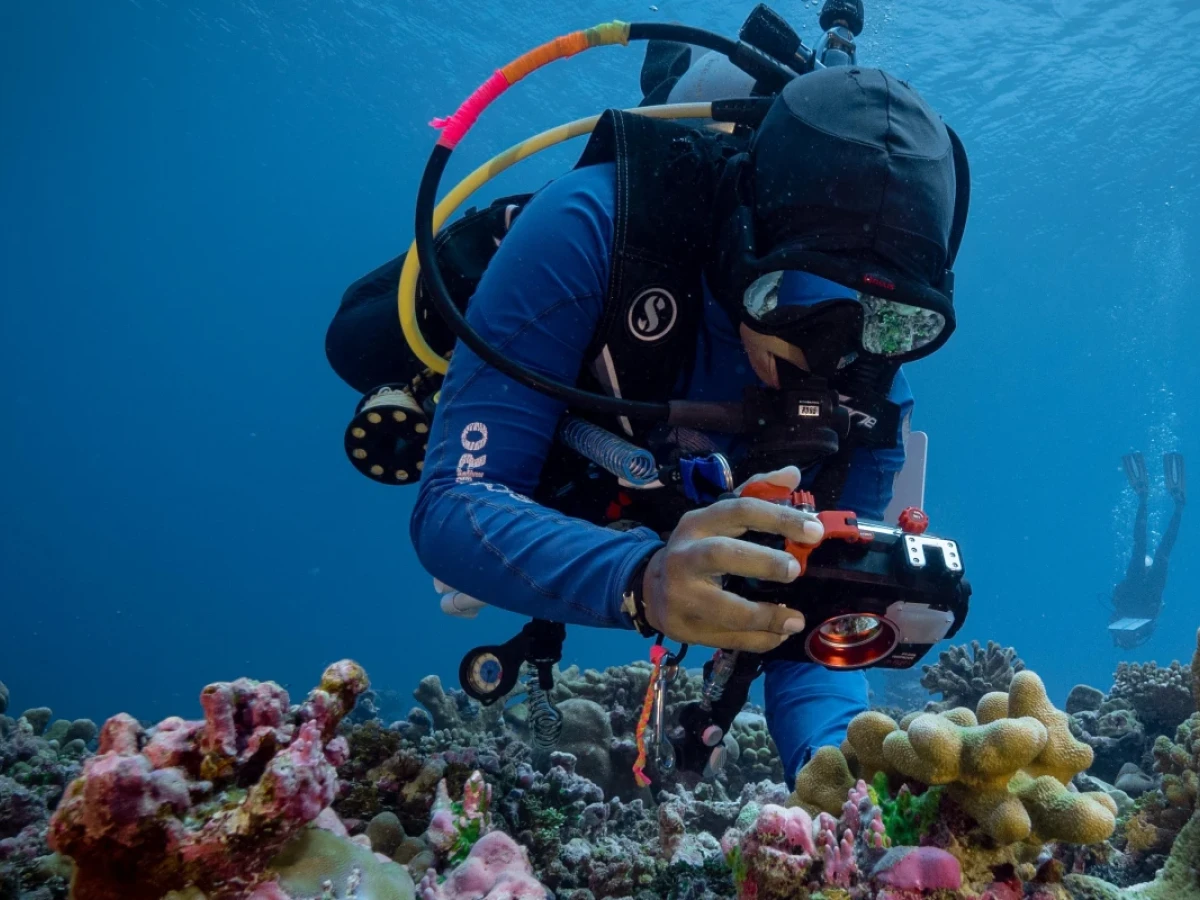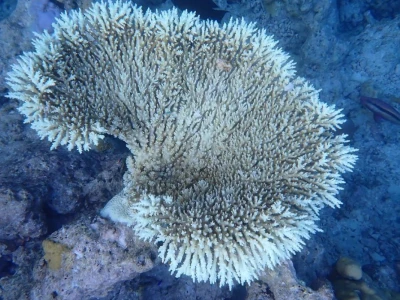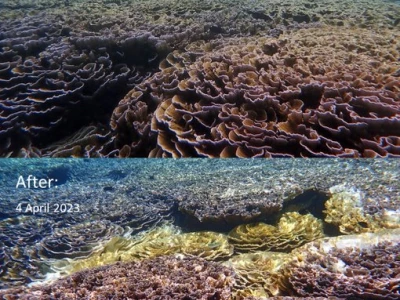
Ocean temperature rise, coral bleaching warning issued
Compared to the charts released by the Marine Research Institute during the same period last year, the sea temperature is expected to be much higher this year.
Maldives Marine Research Institute (MMRI) said on Wednesday that the temperature of the Maldives oceans is expected to rise sharply in the coming weeks, and it could lead to a mass coral bleaching event.
Citing the findings of the US-based National Oceanic and Atmospheric Administration (NOAA), the institute on Wednesday released charts showing coral bleaching alert levels in the country's waters over the next 12 weeks.
As the charts show:
-
At present, there is no threat to the sea-level temperatures
-
After a week, the risk level will continue to increase
-
Alert level likely to reach worst in May
When sea temperature is too high, algae, which lives in coral tissues, is expelled from the coral. Since the coral gets its strong colours because of this algae, the coral loses its colour and becomes white as the algae are released. This is called coral bleaching.
The coral would not die immediately. If the temperature drops to a normal level, algae re-enters the coral tissues.
In order to increase the survival rate of corals, it is advisable to reduce as much as possible other factors that harm corals including:
-
Dumping garbage into the sea
-
Pollution
-
Land reclamation
The MMRI urged the public to be cautious during the period when the risk of bleaching is high in the country and report immediately if they see the effects of bleaching.
The agency has prepared a special online form to report.
It also asked those collecting information about reefs and corals to share the information with the Marine Research Institute.
Every year between February and May, the temperature of the country's oceans goes up. Divers also warn that the problem of bleaching in the country's seas is increasing over the years.
Compared to the charts released by the MMRI during the same period last year, the ocean temperature is expected to be much higher this year.
Sea temperatures are rising due to climate change. The more that toxic gases are trapped in the atmosphere, the warmer the ocean gets. Coral bleaching is a direct effect of climate change caused by global warming.




